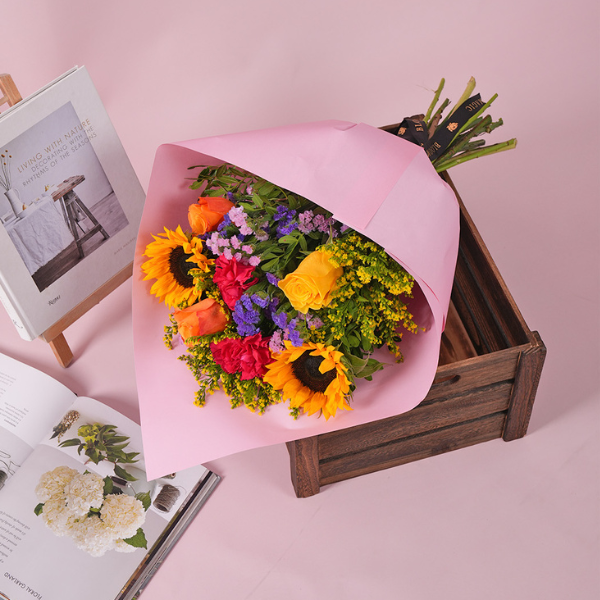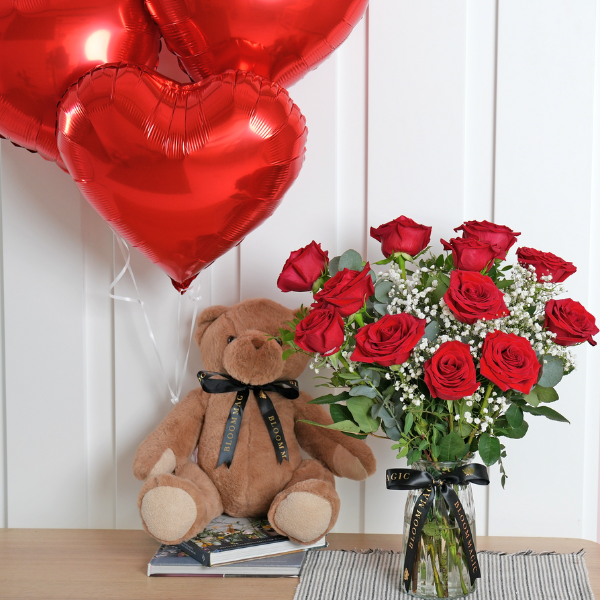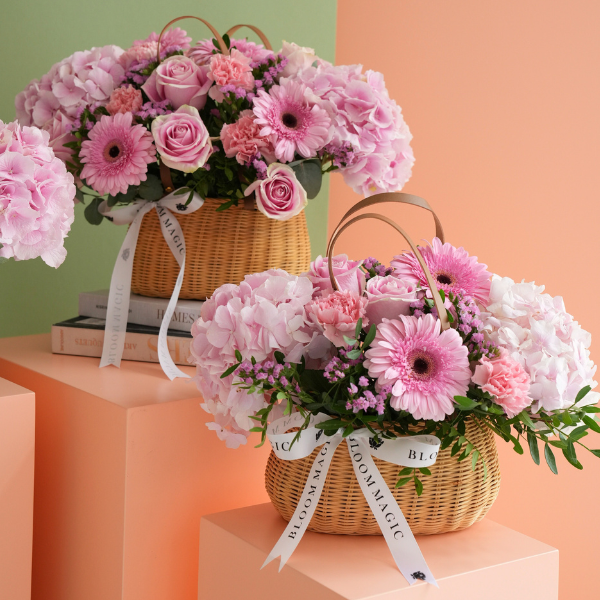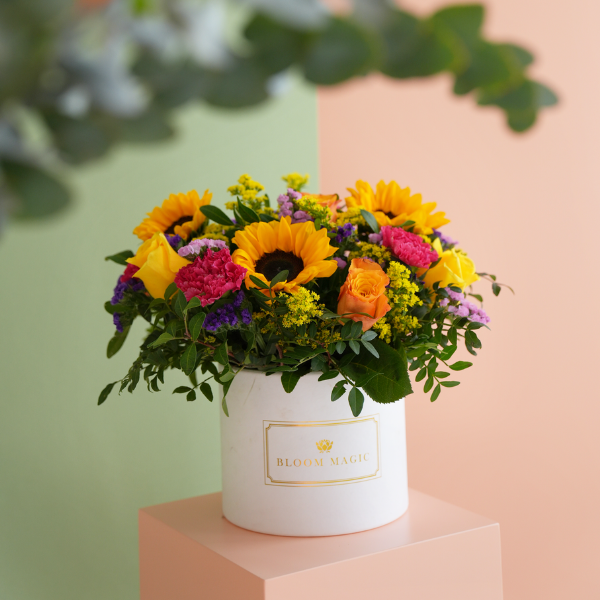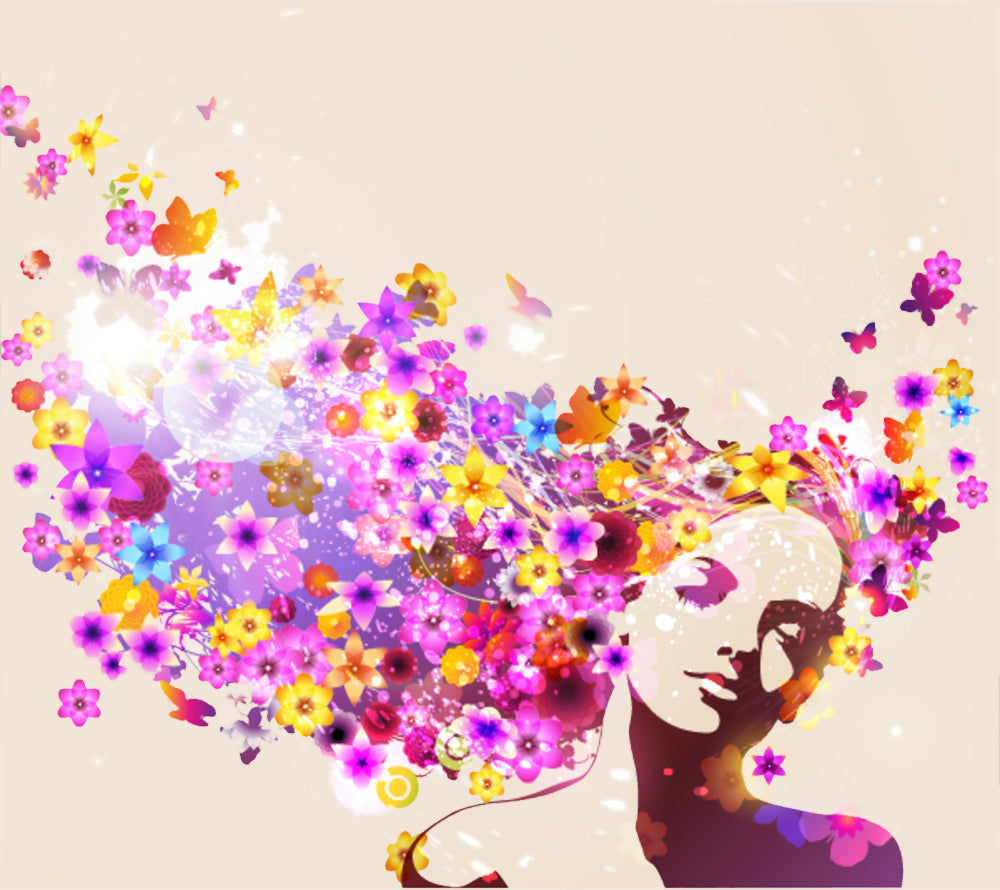We love giving flowers. In every culture, in every country, and in every generation, we have always done so, as far back as scientists can trace. While ancient civilizations might not have been so concerned with anniversaries and holidays, they still began cultivating flower crops thousands of years ago. Some scientists have tried to argue that our present adoration for floral gifts is purely societal- we love them because we’re supposed to, but those who focus behavioural psychology have come to realize there’s something much more going on when flowers are present.
What is Flower Psychology?
Flower psychology, also known as floratology or flower therapy, is the study of how flowers influence human emotions, behavior, and mental well-being. It delves into the psychological effects of flowers on individuals and communities, exploring the ways in which floral arrangements, colors, and fragrances can elicit specific emotional responses and promote positive feelings. Flower psychology recognizes the profound connection between humans and nature, highlighting the therapeutic benefits of surrounding ourselves with floral beauty.
History of Flowers in Psychology
The use of flowers for psychological healing and well-being dates back centuries, with ancient civilizations recognizing the therapeutic properties of flowers and plants. In the 18th and 19th centuries, pioneers in psychology and psychiatry, such as Carl Jung and Sigmund Freud, explored the symbolic significance of flowers in dreams, art, and cultural rituals. They believed that flowers held deep symbolic meanings and could provide insights into the human psyche.
In the early 20th century, psychologists began to conduct empirical research on the psychological effects of flowers, leading to the emergence of flower therapy as a recognized form of complementary medicine. Today, flowers are widely used in various therapeutic settings, including hospitals, nursing homes, and mental health facilities, to promote relaxation, reduce stress, and enhance emotional well-being.
Best Flowers to Improve Mental Health
The transformative power of flowers extends beyond mere aesthetics, offering tangible benefits for our mental health and emotional well-being. Here are some of the best flowers known for their ability to uplift the spirits and improve mental health:

Lavender
Renowned for its calming properties, lavender is often used to promote relaxation, reduce anxiety, and improve sleep quality. Its soothing fragrance has been shown to lower heart rate and blood pressure, making it an ideal choice for stress relief and emotional balance.

Sunflowers
With their cheerful demeanor and sunny disposition, sunflowers symbolize optimism, happiness, and vitality. Gazing upon a bouquet of sunflowers can lift the spirits, boost mood, and instill a sense of positivity and hope.

Roses
A timeless symbol of love and beauty, roses are also known for their mood-enhancing properties. The sight and scent of roses can evoke feelings of joy, affection, and gratitude, fostering emotional connections and enhancing overall well-being.

Chrysanthemums
In many cultures, chrysanthemums are associated with longevity, joy, and prosperity. These resilient flowers are believed to ward off negative energy and promote emotional resilience, making them a popular choice for uplifting the spirits during challenging times.

Gerbera Daisies
With their vibrant hues and whimsical appearance, gerbera daisies are sure to bring a smile to anyone's face. These cheerful flowers are known for their ability to brighten moods, instill a sense of joy, and foster a positive outlook on life.

Peonies
Symbolizing prosperity, good fortune, and compassion, peonies are beloved for their lush blooms and delicate fragrance. These elegant flowers evoke a sense of serenity and contentment, making them ideal for promoting inner peace and emotional well-being.
Incorporating these flowers into your surroundings, whether through bouquets, floral arrangements, or indoor plants, can have a profound impact on your mental health and overall quality of life. So, why not surround yourself with the beauty of nature and let the healing power of flowers transform your world?

Flowers Genuinely Create Happiness
Everyone has a “fake” smile that they dish out for the sake of being polite and for shameless selfies, and we’re so gifted at it that we don’t always realize we’re doing it, but a real true smile is something different altogether. Scientists refer to this as a "Duchenne smile," and it involves involuntary reflexes. The corners of a person’s mouth turn upward, their cheeks rise, and their eyes narrow, causing tiny crow’s feet or wrinkles at the corners. When psychologists at Rutgers set out to uncover how people responded to receiving flowers, the Duchenne smile was one key indicator they looked for. The results were published in the Evolutionary Psychology Journal, and conclude that almost everyone responds to flowers with a Duchenne smile. Perhaps most interestingly, both men and women were tested and the results were universal. Researchers also discovered that, in addition to true smiles, those who receive flowers become more warm and engaged, showing social signs of interest by stepping closer to the giver and turning their heads to the side. Bear in mind, the recipients didn’t even know the givers in the study. One group was simply lucky enough to step onto an elevator with the researchers and the other group enrolled in a study about moods.
Flowers Reduce Stress and Anxiety
The study about moods was only open to women, as researchers determined that they were more likely to be open and honest about changes in their emotions, and were more likely to be facially expressive. The women were divided into three groups and a delivery of flowers, a candle, or fruit was delivered to their home. They were interviewed several times afterwards, and although the intensity of emotion diminished with subsequent interviews for all recipients, those who received the flowers by and large were the only ones to report an increase in positive emotions.
Flowers Have a Butterfly Effect
We all know that moods are contagious, so it stands to reason that those who receive flowers are spreading that joy to others throughout the day. However, in the study where women received flowers at home, researchers noted that the gift was more likely to be placed in a community area of the home, such as a kitchen, dining room, or living room. This means that everyone in the household benefitted from the gift and had more positive emotions as well.
Flowers Make You More Attractive
Another psychologist from the Université de Bretagne ran some seriously interesting studies. In the first, he recruited a group of women to watch a video of a man talking about food. Half of the women sat in a room with three empty vases, while the other half sat in a room with three vases full of flowers. At the end of the video, the women were asked to rate the attractiveness of the man. Believe it or not, he was more attractive to the women who sat in a room with flowers. The psychologist later ran a similar test, but brought the women into a waiting room with a man. Again, half of the rooms had flowers and half did not. The man asked the women for their phone numbers, and a whopping 80% of them complied in the room with flowers, while just 50% did in the room without. The psychologist ran a third test, but this time stationed the man in a mall. His job was to approach women traveling alone and ask for their phone numbers in front of three different types of stores; a shoe store, a bakery, and a flower shop. In front of the shoe store, just 11.5% of the women were willing to part with their digits, and the bakery didn’t fare much better, with 15.5% agreeing, but in front of the flower shop, he succeeded 24% of the time.
We still don’t know what causes people to behave differently when flowers are present, but it’s clear that they do. Whether you’re looking to brighten someone’s day or to make a good impression, sending a flower bouquet is the tried-and-true way to go.

